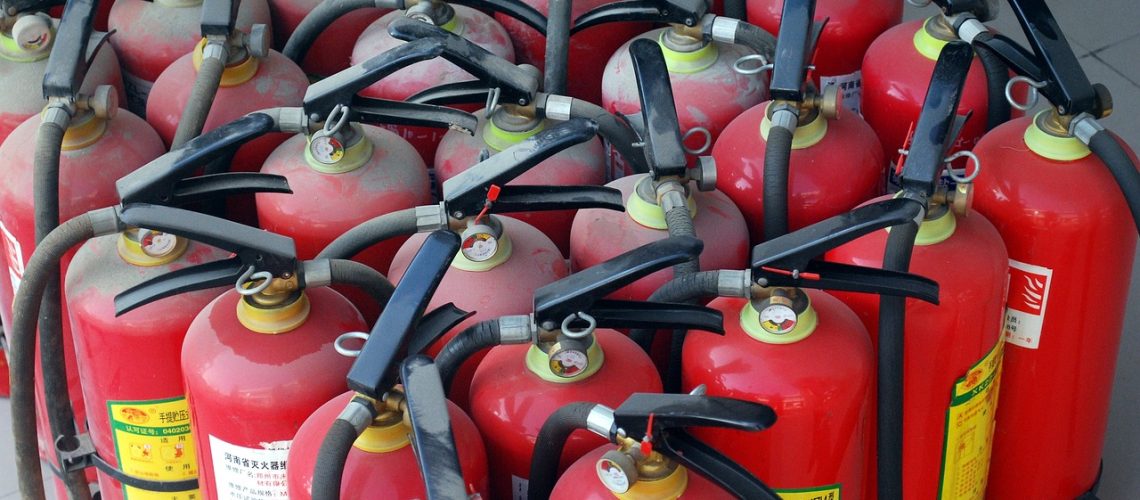Fire extinguishers are important safety devices that can help protect people and property from small fires before they grow into larger ones. Knowing the ins and outs of a fire extinguisher may help you in the future!
Let’s begin with the different classifications of extinguishers, and what types of fires they are used for. The most common types of fire extinguishers are Class A, Class B, Class C, Class D, and Class K.
- Class A fire extinguishers are designed to extinguish fires that involve ordinary combustibles such as wood, paper, and cloth.
- Class B fire extinguishers are designed to extinguish fires that involve flammable liquids and gases such as gasoline, oil, solvents, and lacquers.
- Class C fire extinguishers are designed to extinguish fires that involve electrical equipment such as appliances, wiring, and circuit breakers.
- Class D fire extinguishers are designed to extinguish fires that involve combustible metals such as magnesium, titanium, and potassium.
- Class K fire extinguishers are designed to extinguish fires that involve cooking appliances and media (oils and fats).
Fire extinguishers are typically rated by the amount of fire they can put out and are commonly available in sizes ranging from 2.5 to 20 pounds. They need to be regularly inspected and maintained to ensure they are in good working order, this includes:
- Checking the pressure gauge
- Inspecting the nozzle
- Shaking the extinguisher to prevent the powder from settling
Most local Fire Alarm & Security companies offer this service to their customers, Somerset is happy to help!
Now that you know what types of extinguishers are on the market, and what types of fires they are commonly used for, it is also important to know how to use a fire extinguisher. The acronym PASS is commonly used to remember the steps: Pull the pin, Aim the nozzle, Squeeze the handle, and Sweep the extinguisher from side to side.
Keep in mind, fire extinguishers should be used only on small fires and when it is safe to do so. If a fire is too large or spreading rapidly, evacuate the building and call the fire department immediately.
Knowing these facts about fire extinguishers can help you select and use them effectively to protect yourself and your property in case of a fire.


